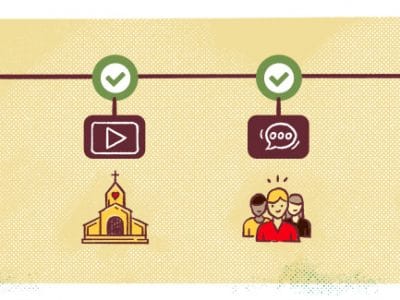Proficient … basic … state assessment tests … standards. The educational world as well as the world outside the classroom resounds with this terminology, all in the name of “accountability.” Even students throw around these terms with ease, well-aware of their significance to their lives. And who would argue against the value of accountability in education?
The No Child Left Behind Act, accountability’s offspring, which is currently up for congressional renewal, has had a powerful effect—both positive and negative—on the performance of students and teachers.
Indeed, teachers and educational theorists have turned the central question of the purpose of education to: What can our students do, produce, demonstrate and exhibit? All these actions emphasize performance—that is, skills.
Up until the mid-20th century, educators formulated this central question differently: What do we want our students to learn, know and understand? For the most part, they placed principal emphasis on curriculum or the content of education. Some in the 1960s, however, due to criticisms of those in the business world, felt American students lacked basic vital skills. These leaders claimed that American students could not think on their feet, could not solve problems, and could not communicate effectively, either orally or in writing. Thus was born Outcomes-Based Education (performance-based education) and currently standards. Accountability in the form of measurability—that is, testing—evolved.
Is it now time, however, to revisit the central question once again? David Patterson in the introduction to his book “When Learned Men Murder” has suggested a stirring and challenging version: What do we wish our students to become? Recently in Milwaukee, an after-basketball-game brawl injured dozens of youth and took authorities 30 minutes to quell. In Ft. Myers, Fla., police made a gang arrest after two girls used knives to carve their initials into the backs of their male victims. Bomb scares, drugs, underage drinking, runaways. Hasn’t the time come for educators and policymakers to take up this question seriously?
Long Beach, Calif., English teacher Erin Gruwell did just that, the results of which were captured in the recent movie “Freedom Writers.” She took on a class of young people who had lost hope and were viewed as lost causes by their other teachers and society in general. Even as a first-year teacher, she pushed, cajoled, encouraged, loved and read them into erasing the word “stereotype” from their vocabularies. What did she desire for her students to become? The answer: hopeful, humane, caring and productive citizens through reading, writing, knowing and understanding. She did not allow herself to make teaching to the test her top priority. Nor did she concern herself with obtaining the stamp of “proficient” on students’ transcripts. Her mission became the transformation of the hearts and minds of her needy students, and “proficient” would follow if necessary.
The educator Neil Postman has declared, “Americans rely on their schools, even more so than on their courts, to express their vision of who they are.” Do our classrooms hold forth a vision of violent and inhumane, yet skillful and effective test-takers? Are we raising learned men and women who mindlessly harm, perhaps even murder, others? Shouldn’t the mission of our schools include, if not become, teaching to the whole person—body, mind and spirit—as Gruwell does? The results may lack measurability but certainly will evidence themselves. Ironically the alternative may be that many of our children will find themselves left behind in an area vital to the nation’s health–character.




